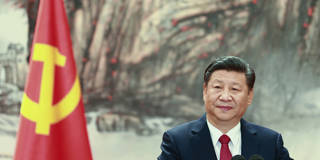Chinese President Xi Jinping is on track to become the most powerful Chinese leader since Mao Zedong – a change that will be felt far and wide. But by abandoning the principle of collective leadership and resurrecting absolutism, the ruling Communist Party of China is increasingly out of step with the times.
BERLIN – Momentous changes are casting a long shadow on China. The country’s political system will soon undergo a profound reform, pending final approval (a quasi-formality) at next year’s congress of the Communist Party of China (CPC). President Xi Jinping, the Party chairman and the “navigator” of the country, has decided on a new course, abandoning the principle of collective leadership. Xi is leading China away from the path taken by Deng Xiaoping after the terror of the Cultural Revolution, and back toward a system of absolute rule by one person without term limits, as under Mao Zedong.

BERLIN – Momentous changes are casting a long shadow on China. The country’s political system will soon undergo a profound reform, pending final approval (a quasi-formality) at next year’s congress of the Communist Party of China (CPC). President Xi Jinping, the Party chairman and the “navigator” of the country, has decided on a new course, abandoning the principle of collective leadership. Xi is leading China away from the path taken by Deng Xiaoping after the terror of the Cultural Revolution, and back toward a system of absolute rule by one person without term limits, as under Mao Zedong.